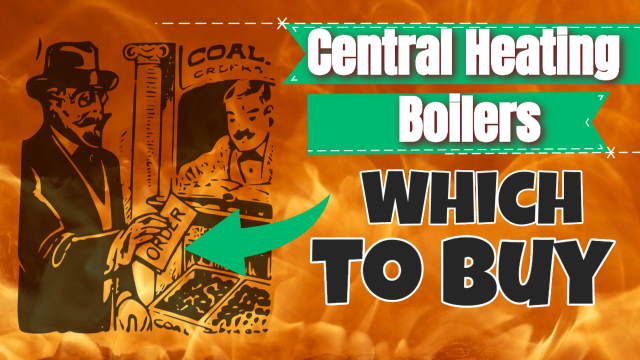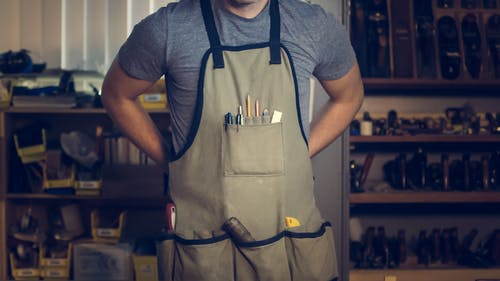Central Heating Boilers - Which to Buy
by Harry Ginea
Affiliate Disclosure ...
THIS PAGE MAY CONTAIN AFFILIATE LINKS, MEANING WE RECEIVE A COMMISSION IF YOU DECIDE TO MAKE A PURCHASE VIA OUR LINKS, THERE IS NO COST TO YOU ... PLEASE READ OUR FULL DISCLOSURE FOR MORE INFO ... THANK YOU!
Posted on 03-03-2020 02:33 AM

We explain all you need to know about Central Heating and Commercial Boilers, from fuels to the types of boiler which burn them. How to get a quality heating system, and finally we discussed boiler reviews and guides including the "Which?" report.
On This Page
- Central Heating Boilers
- Natural Gas, Oil and Propane Boilers
- Combi Boilers
- Condensing Boilers
- Commercial Boilers
- Boiler Controls
- Boiler Problems
- Shell Rupture
- Boiling Dry
- Venting System Deterioration
- How to Research Good Quality Boilers to Rely On
- Boiler Reviews
- Boiler Guides
- Which Report on Best Boilers
Central Heating Boilers
Central Heating Boiler systems are widely installed because they offer a nice, warm, even heat and they offer individualized zoning abilities. Each room or zone is warmed in the heat exchanger of the boiler and passed through pipes through your baseboard or radiators. That heat radiates out and into the room, it is sized for.
No different than a hot air furnace boilers need to be adequately sized for the rooms they serve. If a boiler is installed without adequate radiation the heat will have nowhere to disperse and the heat exchanger may crack prematurely.
Zones can be tailored to individual rooms or to cover multiple spaces via a central thermostat.
As far as residential and commercial heating are concerned, there are two main types of boilers: those that actually boil water and those that merely heat it. Commercial boilers are used to boil water can be used to heat buildings and to generate steam that can be harnessed and used in the performance of mechanical work by a machine.
Natural Gas, Oil and Propane Boilers
Natural gas (NG) and propane (LP) boilers are the most common due to widespread availability and relatively low costs of gas, especially in urban and suburban areas. If a property has a gas meter, it is most likely NG.
If there’s an outdoor gas tank, it’s most likely LP.Oftentimes, the same boiler model will be compatible with both fuel types and can be converted from NG to LP with an appropriate conversion kit. These boilers come in the largest variety and have the highest versatility of all types.
Oil boilers are still very common in areas where gas is unavailable or expensive to deliver.
Large underground or indoor tanks are usually an indicator of an oil-fired system. Keep in mind that oil boilers require a burner kit which may be sold separately or included depending on the model of choice.
Electric boilers are not very common and are typically used where other fuel types are not available or cost-prohibitive.
They are compact and can be useful in small additions (i.e. radiant heat in a garage), without the need for running fuel pipes.
Wood pellet boilers can be a great solution where wood is abundant year-round.
They may cost more than others, but offer the benefit of lower operating costs.
Combi Boilers
Combi BoilerCombi boilers are different from conventional hot water boiler models because they do not store hot water but rather heat it rapidly on demand.
They have a second heating element to speed the heating process and maintain a steady supply for as long as the boiler runs.
Condensing Boiler
Condense, or condensing, boilers are able to recover energy that would normally be expelled through the flue by condensing the escaping water vapor back into liquid water.
They are combi type boilers with all the energy saving advantages of the combi system, but with the added energy saving which comes from condensing the flue gas.
Because the boiler uses latent heat to boost its efficiency to above 90%, it is considered a high efficiency boiler.
Commercial Boilers
Commercial boilers are pressurized systems that burn combustible fuel or use electricity to heat water that is used to provide heating in your building. Natural gas is the most common fuel used in commercial boilers.
Some types of boilers use the hot water itself, while others rely on water that has been turned to steam.Inside the boiler, the burners or electric coils generate heat that is transferred to the water by the heat exchanger.
The process creates either hot water or steam, depending on the type of boiler. The hot water or steam is circulated via pipes throughout your commercial facility.
The water or steam enters radiators or other components that disperse the heat providing the heating you need to keep your indoor spaces comfortable.Natural gas is the most common fuel used in commercial boilers.
Other kinds of boilers are available that burn fuel oil or that use electric resistance coils to produce heating from electricity.
Boiler Controls
System boiler controls allow users to set water temperature, ignition, air and fuel supply mixtures, and internal pressure.
The controls regulate when and how often the burner fires, the temperature of the water, the rate at which fuel is used, and the quality of the mixture of fuel and oxygen.
Safety controls also exist that ensure that the internal pressures in the boiler dont get to high, that water temperature stays within a safe range, and that the system continues to operate properly.
Boiler Problems
The following maintenance should be provided by a heating system professional:
Shell Rupture
Historically, boilers were a source of many serious injuries and property destruction due to poorly understood engineering principles. Thin and brittle metal shells can rupture, while poorly welded or riveted seams could open up, leading to a violent eruption of the pressurized steam. When water is converted to steam it expands to over 1,000 times its original volume and travels down steam pipes at over 100 kilometres per hour (62 mph).
This can lead to catastrophic failure and loss of life. Collapsed or dislodged boiler tubes can also spray scalding-hot steam and smoke out of the air intake and firing chute, injuring the firemen who load the coal into the fire chamber.
Extremely large boilers providing hundreds of horsepower to operate factories can potentially demolish entire buildings.
Boiling Dry
A boiler that has a loss of feed water and is permitted to boil dry can be extremely dangerous. If feed water is then sent into the empty boiler, the small cascade of incoming water instantly boils on contact with the superheated metal shell and leads to a violent explosion that cannot be controlled even by safety steam valves.
Draining of the boiler can also happen if a leak occurs in the steam supply lines that is larger than the make-up water supply could replace.
Venting System Deterioration
Parts of the venting system may deteriorate over time. Chimney problems can be expensive to repair, and may help justify installing new heating equipment that wont use the existing chimney.
Check the physical integrity of the heat exchanger. Leaky boiler heat exchangers leak water and are easy to spot.
So, you need a good quality central heating boiler system, and the stakes are high should not only a large commerical boiler fail, as described above, or even a small home central heating boiler rupture.
How to Research Good Quality Boilers to Rely On

There are three main sources of reasonably impartial information on the choice of central heating boilers and those are:
- Boiler reviews from experts and users,
- Boiler Guides, and in the UK
- the Which Report on the Best Boilers, based on their testing.
Boiler Reviews
Comprehensive boiler reviews based upon the knowledge of plumbers and heating engineers who actually service boilers are rare in the industry.
The number of boiler manufactruers is low and they are clearly rather good at suppressing unwanted critical reviews of any sort. We say this because we do see a dearth of reviews for boilers, including domestic central heating systems.
Te closest you will find to a review is that so much briefer and less trustworthy item of testimonials. Nevetheless, any quick visit to Amazon and a search on manufacturer brand names will bring up plenty of testimonials both positive and negative.
Boiler Guides
The checklist provided by the US Department of Energy can be a valuable guide in making sure that proper routine checks are being made for boiler safety and efficiency.
Other than the general US Department of Energy maintenance guide above, we were unable to discover freely available boiler guides decribing the pros and cons of individual boiler models, from a variety of the main manufctuer's brand names.
Which Report on Best Boilers
The Consumer's Association of the UK publishes the "Which" Report. All main types of consumer products are likely to be reported upon for their quality. It is sold fora charge, and these reports are not generaly available unless you pay for them. It's generally worth finding out how recently your type of boiler has been reviewed, and if the report is only a few years out of date, for for a copy. Yes, just snap a copy up for reference purposes!

